Search

A unit of new recruits sent to patrol Gaza during the First Intifada in 1989. A washing machine is deliberately pushed from the roof of a building as the patrol moves past, killing one of the soldiers. The perpetrator cannot be found. Four of the young soldiers are assigned to uncomfortable, boring, surveillance duty atop the roof, interacting with the Arab family that lives in the building.

Based on a true historic figure, Yamada Nagamasa, a Japanese adventurer who went to Ayothaya in the 16th century and became a soldier in King Naresuan’s army. After the war in Burma it’s restless in Ayothaya, because of a mysterious group of men that terrorizes and plunders the city. Yamada goes after them and discovers that the men are rebelious Japanese samurai. Now he has to fight his own countrymen.

Ruth is an unusual character in the Bible. First she’s a female protagonist, one of a select few there. Secondly her story gets its own book in the Old Testament, a short item of only four chapters. Lastly she’s the first non-Hebrew protagonist in the Bible since Abraham sired the Hebrew people. It’s a simple story in the Old Testament. Ruth is one of two Moabite women who marry the sons of Elimelech and Naomi. When Elimelech and sons Mahlon and Chillion die, leaving Naomi a widow with two widowed daughters-in-law, Naomi decides to return to Israel. One daughter-in-law, Orpah, bids her goodbye. Daughter-in-law Ruth however says she will not desert her. She’s going to give up the life and culture of Moab and her people will be Naomi’s people in the most famous line from the Book of Ruth.

This harrowing tale of survival centers on Rose, a Masurian woman, whose German soldier husband was killed in the war, leaving her alone on their farm. A single woman had no defense against Russian soldiers who raped as a form of revenge, nor against plundering Poles who found themselves in desperate straits. Help arrives for Rose in the form of Tadeusz, a former officer in the Polish Home Army who deserted after he saw his wife raped and murdered by Russian troops and is attempting to hide his identity.

A newly arrived governor finds his province under the control of the corrupt Colonel Huerta. To avoid assassination by Huerta, he pretends to be weak and indecisive so Huerta will believe he poses no threat. But secretly he masquerades as Zorro, and joins the monk Francisco and the beautiful aristocrat Hortensia in their fight for justice against Huerta and his soldiers.

Shakespeare’s 17th century masterpiece about the “Melancholy Dane” was given one of its best screen treatments by Soviet director Grigori Kozintsev. Kozintsev’s Elsinore was a real castle in Estonia, utilized metaphorically as the “stone prison” of the mind wherein Hamlet must confine himself in order to avenge his father’s death. Hamlet himself is portrayed (by Innokenti Smoktunovsky) as the sole sensitive intellectual in a world made up of debauchers and revellers. Several of Kozintsev directorial choices seem deliberately calculated to inflame the purists: Hamlet’s delivers his “To be or not to be” soliloquy with his back to the camera, allowing the audience to fill in its own interpretations.

April 1988, Ouvéa Island, New Caledonia. 30 gendarmes are taken hostage by a group of Kanak freedom fighters. 300 soldiers are sent from France to re-establish order. 2 men confront each other: Philippe Legorjus, chief of the terrorist squad, and Alphonse Dianou, head of the kidnappers. Through their shared values, they will attempt to make discussion triumph. But, in the middle of a presidential election, when the stakes are political, order isn’t always dictated by morality. A violent and troubling epic that marks the return of Mathieu Kassovitz in front and behind the camera.

Hackman plays a New York professor who wants a change in his life, and plans to get married to his girlfriend and move to California. His mother understands his need to get away, but warns him that moving so far away could be hard on his father. Just before the wedding, the mother dies. Hackman’s sister (who has been disowned by their father for marrying a Jewish man) advises him to live his own life, and not let himself be controlled by their father.
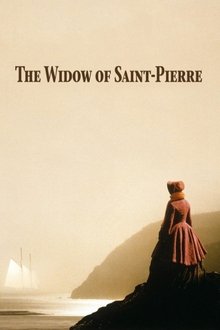
In 1850, on the isolated French island of Saint-Pierre, a murder shocks the natives. Two fishermen are arrested. One of them, Louis Ollivier, dies in custody. The other, Neel Auguste, is sentenced to death by the guillotine. The island is so small that it has neither a guillotine nor an executioner. While those are sent for Auguste is placed under the supervision of an army Captain.

A young academy soldier, Maciek Chelmicki, is ordered to shoot the secretary of the KW PPR. A coincidence causes him to kill someone else. Meeting face to face with his victim, he gets a shock. He faces the necessity of repeating the assassination. He meets Krystyna, a girl working as a barmaid in the restaurant of the “Monopol” hotel. His affection for her makes him even more aware of the senselessness of killing at the end of the war. Loyalty to the oath he took, and thus the obligation to obey the order, tips the scales.

Celestine has a new job as a chambermaid for the quirky M. Monteil, his wife and her father. When the father dies, Celestine decides to quit her job and leave, but when a young girl is raped and murdered, Celestine believes that the Monteils’ groundskeeper, Joseph, is guilty, and stays on in order to prove it. She uses her sexuality and the promise of marriage to get Joseph to confess — but things do not go as planned.

As a young boy, future emperor Nero witnesses the mad Emperor Caligula kill his father and exile his mother. While in exile in the pontine islands, Agrippina, his mother, sees a vision telling her that her son can become emperor, but she will have to die first. She accepts the proposal. Back in Rome, Nero, now being raised by emperor Claudius after Caligula’s death, Agrippina returns. She poisons Claudius’ food and Nero becomes emperor. At first, Nero cuts taxes and introduces successful programs and invades Brittania. Soon he meets a beautiful slave named Claudia Acte, and marries her, throwing off his engagement with Claudius’ daughter, Claudia Octavia, telling her she can marry someone she will be happy with. Heartbroken, she arrives at an island and kills herself. Nero enjoys being married to Claudia Acte, but soon he gradually goes mad with power and sets fire to Rome.

15-year-old Nina witnesses a terrible crime that puts her life in danger. Being an orphan, she has nobody she can trust. When corrupt businessman Thomas Backer sends five killers after Nina, witness protection officer, Max, a former special-forces soldier, is responsible for her safety. They soon overcome their initial distance to find common ground. While on the run from the ruthless Backer, Rudi, one of Max’s former comrades, comes to their rescue – and continues to help the two out of some precarious situations. Even Max’s ex-girlfriend Sara is not just there to help him as a federal prosecutor. Nevertheless, Nina and Max face ever-increasing danger, and soon the teenager is not the only one in need of a guardian angel – Max could use one too.

Matthieu, a 33 year old Parisian who finds out that the father he never knew has died and decides to go to his funeral in order to meet his two siblings in Quebec. But once in Montréal, he realizes that nobody is aware of his existence or even interested in it. He is alone, in hostile territory…Filled with secrets, this story about one man’s coming to term with the foreign family he never knew he had is complex with interconnected themes such as masculinity, family, paternity and filial devotion coiling in the layers underneath.

Norwegian winter, 1915. On the island Bastøy, outside Oslo, a group of young boys aged 11 to 18, are held in an institution for delinquent youth, notorious for its sadistic regime. One day a new boy, Erling, arrives, determined to escape from the island. After a tragic incident, he ends up leading the boys in a violent uprising. When the boys manage to take over the island, 150 soldiers are sent in to restore order.

War seen through the eyes of Serra, a university student from Palermo who volunteers in 1942 to fight in Africa. He is assigned to the Pavia Division on the southern line in Egypt. Rommel and the Axis forces are bogged down; it’s October, the British prepare an offensive. At first, boredom, heat, hunger, and thirst bedevil the Italians; then the Brits attack, and there’s no luck or heroism in death. Finally, it’s retreat in confusion. Serra, his sergeant Rizzo, and his lieutenant Fiori take a last walk toward home. It’s said that each soldier gets three miracles; when Serra’s are used up, what then?
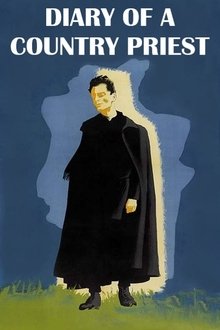
An inexperienced, sickly priest shows up in the rural French community of Ambricourt, where he joins the community’s clergy. But the locals don’t take kindly to the priest, and his ascetic ways and unsociable demeanor make him an outcast. During Bible studies at the nearby girls school, he is continually mocked by his students. Then his attempt to intervene in a family feud backfires into a scandal. His failures, compounded with his declining health, begin to erode his faith.
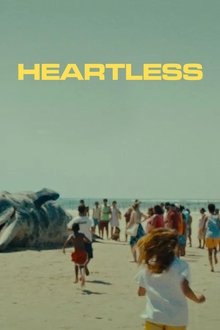
Summer 1996, north-east coast of Brazil. Tamara is enjoying her last weeks at the fishing village she lives in before departing to Brasilia for her studies. One day, she hears about a teenager nicknamed Heartless after a scar she has on her chest. Over the course of the summer, Tamara feels a growing attraction for this mysterious girl.

After divorcing her husband, “Alice” has to take on the full duties of motherhood as a single person. In caring for a son like “August” A high school boy who grew up questioning his father about his background. On the day August turns 15, some mysterious promises from the past begin to follow him gradually. His father’s broken orders before he died became the trigger for August’s death. Witness the horrors of Manohrah’s mysticism trying to draw him back to his own retribution. Alice, who believes in reason and right, must do everything she can to keep her only son.
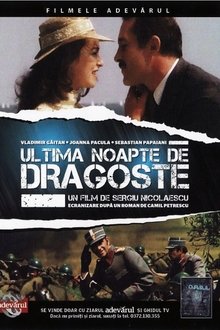
In 1916, shortly before Romania’s entry in World War One Romanian Army Lieutenant Tudor Gheorghiu is posted to a border patrol unit on Romania’s border with Austria-Hungary. Not receiving any news from his wife he persuades the commanding officer, Captain Dimiu, to allow him a short leave to visit his wife. Tudor married Lena two years before but was very jealous and suspected her of infidelity. When his grandfather dies Tudor inherits most of the fortune. Gigolo lawyer Andrei Nicolau is the executor of the will. He also is the man who lustfully desires Tudor’s beautiful wife. A contest for Lena’s love begins. Romania is plunged into WW1 and ironically Tudor receives his junior Lieutenant commission in the same regiment where gigolo lawyer Nicolau serves as a Major. Their destinies seem intertwined.
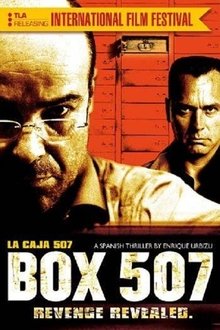
Modesto, an honest and responsible professional, is a manager of a small bank branch in Costa del Sol. His daughter died in a forest fire which he had thought to be accidental. One day he wakes up in his bank, after being locked and dragged by unknown men, and finds out in a safety-deposit box that the fire was plotted. From that day on, he sets on a personal crusade for justice.

Takes us inside the world of Anonymous, the radical “hacktivist” collective that has redefined civil disobedience for the digital age. The film explores early hacktivist groups like Cult of the Dead Cow and Electronic Disturbance Theater, then moves to Anonymous’ raucous beginnings on the website 4chan. Through interviews with current members, people recently returned from prison or facing trial, writers, academics, activists and major players in various “raids,” the documentary traces Anonymous’ evolution from merry pranksters to a full-blown movement with a global reach, the most transformative civil disobedience of our time.

In Lapa, Rio de Janeiro, the idle aspirant writer Zeca has been living with Arts Professor Júlia for five years. He is stuck on page 50 of his novel for a long time and Zeca claims lack of inspiration to conclude the plot. He leads a comfortable life from inheritance left by his mother and administrated by his father Humberto. When Zeca sees Júlia alone with her best friend Carol in his flat, he believes that they are having a love affair and becomes obsessed with Carol, following her. Júlia travels to São Paulo with work giving Zeca the perfect opportunity to have an affair with Carol. So begins his complicated life: while Júlia works and studies for her doctorate, Zeca has sex with Carol during the days and with Júlia during the nights. Zeca plots a scheme to stay with either Carol or Júlia but his plan does not go as he hoped.

In the wake of a horrific car accident that kills her husband, Michael, expectant mother Madeline Matheson discovers that her daughter, Grace, has died in the womb. Ignoring her doctor’s warnings that the fetus must be removed from her body, a grief-stricken Matheson demands to carry the child to term — even if it endangers her own life to do so. Curiously, little Grace emerges undead — and with a craving for human blood.

The film is based on the second book from the Adventures of Erast Petrovich Fandorin series of novels written by the Russian author Boris Akunin. The film takes place in 1877 during the Russian-Turkish war. Erast Fandorin has just escaped from Turkish prison and is trying to get on the Russian side as soon as possible to give important information about the upcoming attack of the enemy. On his way he meets Varvara Suvorova, a young lady who is going to see her fiancée – a soldier of the Russian army. Erast also knows that there is a spy somewhere in the Russian army, everyone is under suspicion.

Occupied France, 1942. Gilles is arrested by SS soldiers alongside other Jews and sent to a camp in Germany. He narrowly avoids sudden execution by swearing to the guards that he is not Jewish, but Persian. This lie temporarily saves him, but Gilles gets assigned a life-or-death mission: to teach Farsi to Head of Camp Koch, who dreams of opening a restaurant in Iran once the war is over. Through an ingenious trick, Gilles manages to survive by inventing words of “Farsi” every day and teaching them to Koch.

This musical is based on four short stories by Damon Runyon. In one tale, gambler Feet Samuels sells his body to science just as he realizes that Hortense loves him and that he would rather live than die. In another story, Harriet’s parrot is killed, and she has problems dealing with her loss. Then, there is a gambler, “Regret”, who has bloodhounds on his trail when he becomes a murder suspect. Finally, “The Brain” is bleeding profusely, and his friends search for a way to save his life through a blood transfusion.

Elena, a Sicilian mother of three, is murdered by her husband. Her cousin, Roberto decides to take the three orphans into custody. Together with his wife, Anna, he takes charge of the maintenance of the three nephews, who join the other two children of the couple. The adaptation of the three children to the new reality is complex and conflicting. The backlash on the family budget is heavy. Roberto and his wife make do to ensure that the children are supported, trying not to let them know how their mother died.

A dishonorably discharged soldier seeks out his estranged father to help him pursue his dream of becoming a professional motorcycle racer. While training, he meets a small-town, aspiring singer and a motorcycle shop owner who begin to break down the walls his father’s absence had built up.
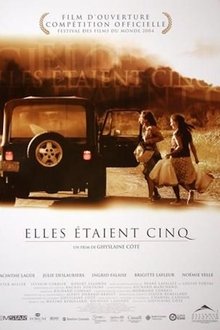
In Montreal, the teenagers Manon, Anne, Isa, Claudie and Sophie are friends since their childhood. While spending a couple of days in the cottage of Sophie’s parents nearby a lake, the girls decide to give a party, and Manon and Sophie hitch for a ride to the town in a jeep to buy some beers and supplies and they invite the driver to the party. On the return, the same driver stops the car and later Sophie is found stabbed, raped and covered of blood. Fifteen years later, Manon sees the guy in a car-wash and she invites her former friends to return to the house nearby the lake, where wounds of their traumatic loss are disclosed.
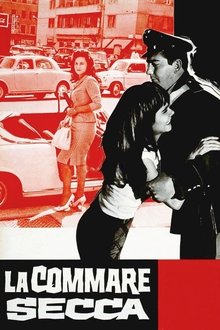
Roman police detectives interrogate a series of potential perpetrators in their struggle to determine whom to arrest for the brutal murder of a beautiful prostitute whose body is discovered in a park on the day of a torrential rainstorm. One by one, the prime suspects — girl-crazy teenager Nino, pickpocket Canticchia, a soldier on leave, a tourist and a pimp — recount the events of the day to the police, each insisting he is innocent.

Alan gets a map to some war treasure which the Japanese army left behind on a small Pacific island at the end of World War II. But some gangsters try to steal the map from him and so he hides on Charlie’s boat which just leaves the harbor. He manipulates the ship’s compass so that Charlie is not aware that he is sailing to the treasure island. But when they step on the island, they discover that it is not as abandoned as they believed: there are some natives – and a Japanese soldier still defending the treasure

Angelique goes in search of her husband Joffrey de Peyrac who did not die on the stake.

Why won’t Disco die? Might it contain hidden depths? Politically correct revisionists are trying to recast disco as a misunderstood culture of protest. Through interviews with Gloria Gaynor, The Village People, Kool and the Gang and others, along with a goldmine of stock footage and speculative reenactments, The Secret Disco Revolution presents a comic-ironic investigation into disco and its mysterious longevity.
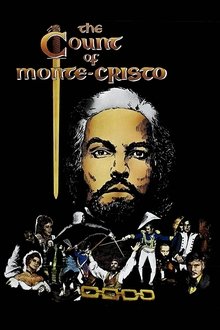
A TV adaptation of the classic Alexandre Dumas novel. Edmond Dantes is falsely accused by those jealous of his good fortune, and is sentenced to spend the rest of his life in the notorious island prison, Chateau d’If. While imprisoned, he meets the Abbe Faria, a fellow prisoner whom everyone believes to be mad. The Abbe tells Edmond of a fantastic treasure hidden away on a tiny island, that only he knows the location of. After many years in prison, the old Abbe dies, and Edmond escapes disguised as the dead body. Now free, Edmond must find the treasure the Abbe told him of, so he can use the new-found wealth to exact revenge on those who have wronged him.

South African wilderness 1800’s. Five years after their mother died, Rachel, a girl on the cusp of adolescence and 5-year-old Jamie find themselves on their way to the virgin gold fields with their father, Herman, as he tries to start a new life. When Jamie goes missing in a freak snow blizzard, Rachel braves the storm to look for her little brother.

Daniel Craig candidly reflects on his 15 year adventure as James Bond. Including never-before-seen archival footage from Casino Royale to the upcoming 25th film No Time To Die, Craig shares his personal memories in conversation with 007 producers, Michael G Wilson and Barbara Broccoli.

The story continues from the Japanese SIGNAL drama series. In 2021, a limousine taxi driver causes an accident on a highway, and a high-level government official dies in the accident. The cold case investigation unit, including Kento Saegusa and team leader Misaki Sakurai, have doubts about the case. Meanwhile, in 2009, administrative officers die consecutively in car accidents. The police announce these deaths as accidents. Takeshi Ōyama believes that these deaths were not the product of simple accidents. At 11:23 pm, a walkie-talkie turns on and makes a connection between the future and past. Kento Saegusa and Takeshi Ōyama face the threat of bioterrorism.

Francesca and Walter are two-bit criminals in Northern Italy, and, in an effort to avoid the police, Francesca joins a group of women rice workers. She meets the voluptuous peasant rice worker, Silvana, and the soon-to-be-discharged soldier, Marco. Walter follows her to the rice fields, and the four characters become involved in a complex plot involving robbery, love, and murder.